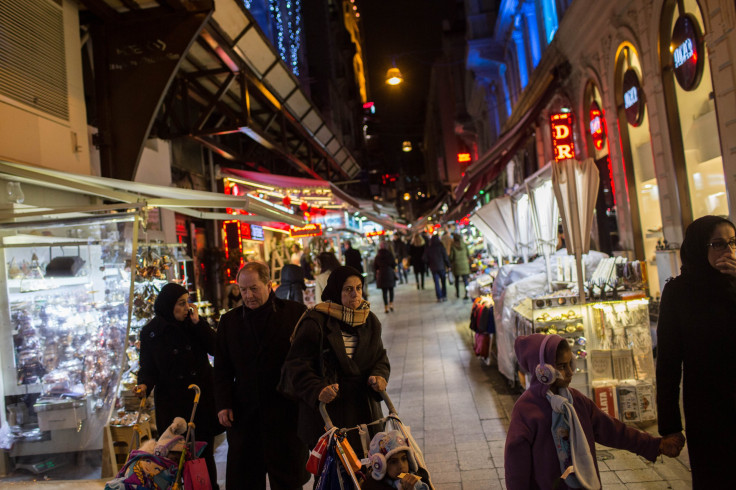Turkish Police On High Alert In Deserted Streets After Bombing

Police were on high alert across Turkey on Sunday after the previous day's attack by a suicide bomber in Istanbul's most popular shopping district, killing three Israelis and an Iranian, with dozens more people wounded in the blast.
Israeli President Benjamin Netanyahu told reporters on Saturday that Israel was trying to determine whether the attack had been aimed at Israelis and was checking if Islamic State was responsible.
"There is information that it is an attack carried out by an ISIS member," he told reporters on Saturday. "But this is preliminary information; we are still checking it."
Israel has confirmed that three of its citizens had died in the blast. Two of them held dual citizenship with the United States. An Iranian was also killed, Turkish officials said.
The attack on Istiklal Street, Istanbul's most popular shopping district, appeared similar to a January suicide bombing in another tourist area of Istanbul. In that attack, blamed by the government on Islamic State, a pedestrian suicide bomber blew himself up among a group of German tourists near the city's historic center.
No one has claimed responsibility for Saturday's bombing. Turkish officials said it could have been carried out by Islamic State or by the outlawed Kurdistan Workers Party (PKK), which is carrying out a violent struggle for autonomy in the mainly Kurdish southeast.
A 2-1/2-year PKK ceasefire collapsed last July, triggering the worst violence in the southeast since the 1990s. Turkey has already been on high alert because of security fears about violence during a spring festival this weekend.
The United States and some European embassies had warned their citizens to be vigilant ahead of the Newroz celebrations, which are mostly celebrated by Kurds. The festival often brought clashes between Kurdish protesters and security forces during the height of the PKK insurgency in the 1990s.
A statement from the PKK sent greetings to its people, who it said had not conceded on freedom during the winter and called on young Kurds to join its movement.
EERILY QUIET
Streets across Istanbul -- usually bustling with traffic and pedestrians on Sundays -- were eerily quiet apart from the sound of police helicopters buzzing overhead. Television footage showed Istiklal Street virtually empty.
A small group of lawmakers from the Peoples' Democratic Party (HDP), the Kurdish-rooted opposition party, were scheduled to walk to Istanbul's Bakirkoy district for Newroz celebrations. The roads in that area were being closed by police for security reasons, Anadolu Agency reported.
Social media sites such as Twitter and Facebook were not readily accessible, local users reported. Authorities have blocked access to such sites after bombings in the past, usually because graphic images have been shared online.
Saturday's suicide bombing was the fourth such attack in Turkey this year, bringing the death toll to more than 80. Responsibility for the past two attacks, both suicide car bombings in the capital Ankara, was claimed by a PKK offshoot.
In its armed campaign in Turkey, the PKK has historically struck directly at the security forces but recent bombings suggest it could be shifting tactics.
© Copyright Thomson Reuters 2024. All rights reserved.











